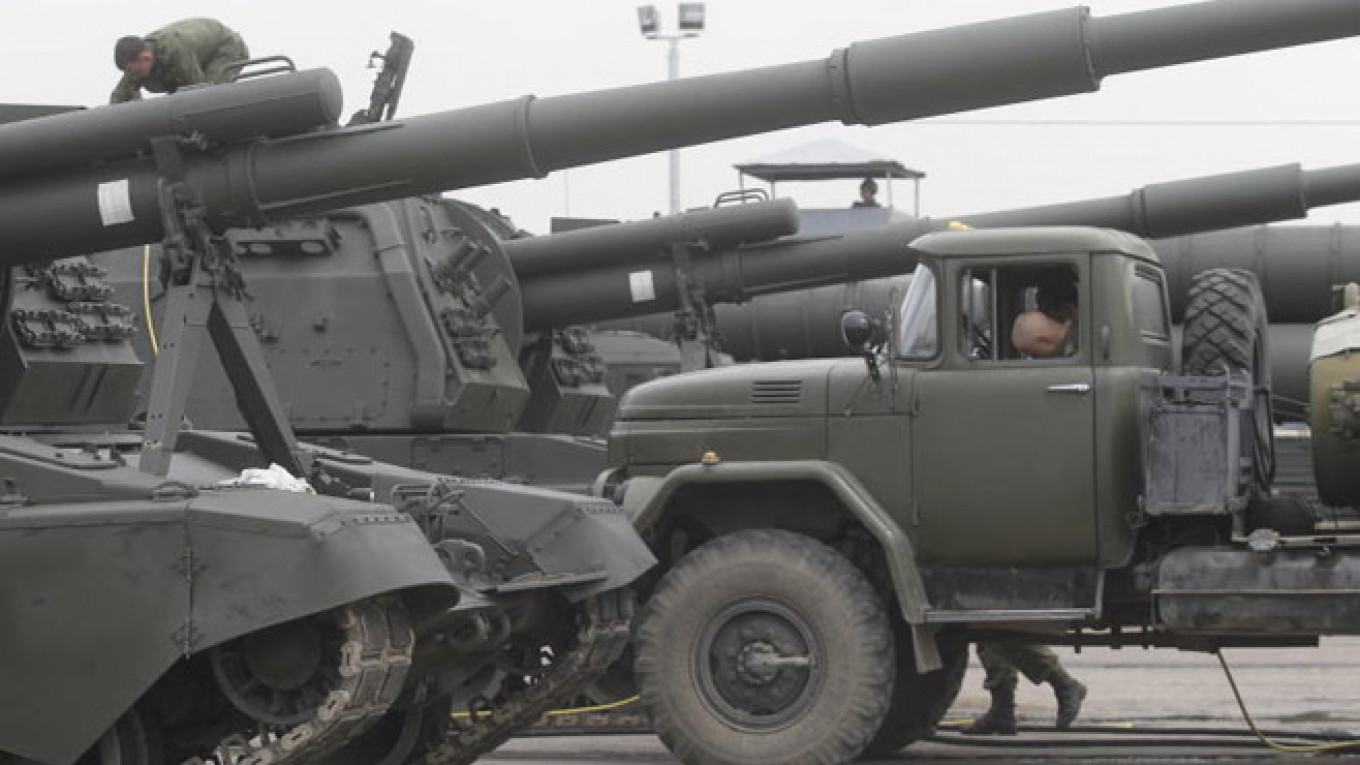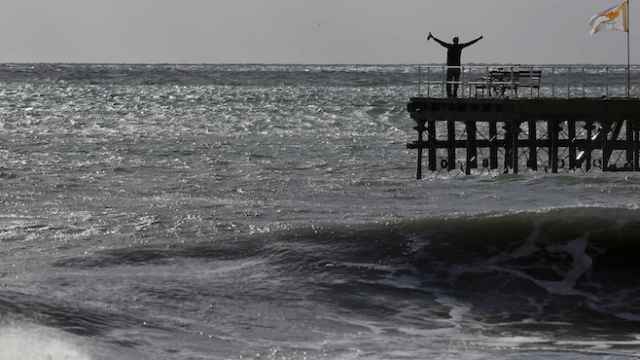The president of Cyprus has reportedly offered the Russian navy and air force access to Cypriot military bases, an offer analysts say is unlikely to materialize.
Tensions between the European Union and Russia over the crisis in Ukraine have created discord among and within EU member states on how best to approach Russia.
"There is an old [defense] agreement [between Cyprus and Russia] which is to be renewed as it is," Cypriot President Nicos Anastasiades was cited as saying by the Xinhua news agency last week. "At the same time, some additional facilities will be provided just like we do with other countries — France and Germany for example."
Anastasiades' announcement follows a wave of Greek media reports claiming that Russia's ambassador to Cyprus, Stanislav Osadchy, had expressed an interest in seeing Russia gain access to some of the military facilities in his host country.
Russian media outlets have speculated that the two countries could sign an agreement to expand military cooperation as early as Feb. 25, when Anastasiades is scheduled to make an official visit to Moscow. Osadchy reportedly said the matter was "still under discussion."
Cyprus, an EU member since 2004, has served as an outpost for some European militaries, providing facilities to French aircraft and German ships and helicopters.
If Russia and Cyprus were to forge a similar agreement, the Russian military could gain access to Cyprus' Andreas Papandreou air base and the Paphos International Airport, located some 50 kilometers from the United Kingdom's RAF Akrotiri station.
Alexander Khramchikhin, a military expert from the Institute for Political and Military Analysis, said Russian access to Cypriot military bases would be "useful" from a strategic standpoint.
Other analysts, however, doubt that Cyprus' proposal was genuine. "To speak of a Russian military presence in Cyprus, on the territory of an EU state, is beyond strange," Ruslan Pukhov, director of the Moscow-based Center for Analysis of Strategies and Technologies, told The Moscow Times. "It just makes no sense. I am certain the president of Cyprus will retract his statement, which is being used as a tool to put pressure on the EU, in my opinion."
Cypriot Foreign Minister Ioannis Kasoulides was indeed quick to deny that Russia would be offered access to the country's military bases.
"What President Nicos Anastasiades referred to, in a recent interview, was the renewal of a military cooperation agreement with Russia consisting of maintenance of military equipment sold to Cyprus years ago, as well as the purchase of spare parts according to existing contracts," Kasoulides was quoted as saying by the Cyprus News Agency on Monday.
Mikhail Barabanov, of the Center for Analysis of Strategies and Technologies, said that Anastasiades' proposition was a mere "friendly gesture" toward Moscow, a ploy to remind the Kremlin of the warm relations it fosters with the Mediterranean state.
"The EU has enough leverage over Cyprus to prevent this from happening," Barabanov wrote in an e-mail to The Moscow Times.
Cypriot officials have recently objected to the imposition of additional sanctions against Russia. The countries have entertained close financial ties since the collapse of the Soviet Union. Cyprus is a key offshore destination for Russian capital and a major source of investment to the country. Between 2005 and 2011, Cyprus was the second largest source of foreign investment to Russia after Great Britain, according to Russia's Federal State Statistics Service.
Pukhov thinks that Cyprus — which in March 2013 became the fifth member of the euro zone to receive a bail-out — will use its cordiality toward Russia to lure European funds its way.
"Europe is asking itself how it can pressure Russia," Pukhov said. "Others are thinking of ways to put pressure on the EU."
Contact the author at g.tetraultfarber@imedia.ru
A Message from The Moscow Times:
Dear readers,
We are facing unprecedented challenges. Russia's Prosecutor General's Office has designated The Moscow Times as an "undesirable" organization, criminalizing our work and putting our staff at risk of prosecution. This follows our earlier unjust labeling as a "foreign agent."
These actions are direct attempts to silence independent journalism in Russia. The authorities claim our work "discredits the decisions of the Russian leadership." We see things differently: we strive to provide accurate, unbiased reporting on Russia.
We, the journalists of The Moscow Times, refuse to be silenced. But to continue our work, we need your help.
Your support, no matter how small, makes a world of difference. If you can, please support us monthly starting from just $2. It's quick to set up, and every contribution makes a significant impact.
By supporting The Moscow Times, you're defending open, independent journalism in the face of repression. Thank you for standing with us.
Remind me later.






